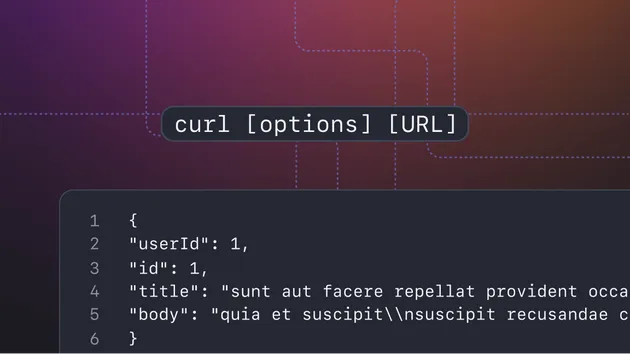SSL and Web Analyzer
Pricing
Pay per usage
SSL and Web Analyzer
The SSL Checker actor scans IPs or subnets for SSL certificate details using masscan. It retrieves response headers, titles, and redirected URLs for HTTP and HTTPS. Customize parameters and set result limits for efficient scanning
5.0 (2)
Pricing
Pay per usage
8
Total users
16
Monthly users
1
Runs succeeded
>99%
Last modified
5 months ago
You can access the SSL and Web Analyzer programmatically from your own applications by using the Apify API. You can also choose the language preference from below. To use the Apify API, you’ll need an Apify account and your API token, found in Integrations settings in Apify Console.
{ "openapi": "3.0.1", "info": { "version": "1.1", "x-build-id": "NQwPYnXr0TQgkBlvf" }, "servers": [ { "url": "https://api.apify.com/v2" } ], "paths": { "/acts/dz_omar~ssl-and-web-analyzer/run-sync-get-dataset-items": { "post": { "operationId": "run-sync-get-dataset-items-dz_omar-ssl-and-web-analyzer", "x-openai-isConsequential": false, "summary": "Executes an Actor, waits for its completion, and returns Actor's dataset items in response.", "tags": [ "Run Actor" ], "requestBody": { "required": true, "content": { "application/json": { "schema": { "$ref": "#/components/schemas/inputSchema" } } } }, "parameters": [ { "name": "token", "in": "query", "required": true, "schema": { "type": "string" }, "description": "Enter your Apify token here" } ], "responses": { "200": { "description": "OK" } } } }, "/acts/dz_omar~ssl-and-web-analyzer/runs": { "post": { "operationId": "runs-sync-dz_omar-ssl-and-web-analyzer", "x-openai-isConsequential": false, "summary": "Executes an Actor and returns information about the initiated run in response.", "tags": [ "Run Actor" ], "requestBody": { "required": true, "content": { "application/json": { "schema": { "$ref": "#/components/schemas/inputSchema" } } } }, "parameters": [ { "name": "token", "in": "query", "required": true, "schema": { "type": "string" }, "description": "Enter your Apify token here" } ], "responses": { "200": { "description": "OK", "content": { "application/json": { "schema": { "$ref": "#/components/schemas/runsResponseSchema" } } } } } } }, "/acts/dz_omar~ssl-and-web-analyzer/run-sync": { "post": { "operationId": "run-sync-dz_omar-ssl-and-web-analyzer", "x-openai-isConsequential": false, "summary": "Executes an Actor, waits for completion, and returns the OUTPUT from Key-value store in response.", "tags": [ "Run Actor" ], "requestBody": { "required": true, "content": { "application/json": { "schema": { "$ref": "#/components/schemas/inputSchema" } } } }, "parameters": [ { "name": "token", "in": "query", "required": true, "schema": { "type": "string" }, "description": "Enter your Apify token here" } ], "responses": { "200": { "description": "OK" } } } } }, "components": { "schemas": { "inputSchema": { "type": "object", "required": [ "Ips_or_CIDR", "used_masscan" ], "properties": { "used_masscan": { "title": "Use Masscan for Scanning (Checkbox) and provide CIDR IF NOT Provide IP Address Directly", "type": "boolean", "description": "Check this box to use Masscan for scanning a CIDR. If unchecked, you can directly provide specific IP addresses without using Masscan." }, "Ips_or_CIDR": { "title": "CIDR or IP Addresses", "type": "array", "description": "Specify the CIDR ranges or IP addresses you wish to scan. You can include multiple CIDR notations or IPs in the list.", "items": { "type": "string" } }, "masscan_port": { "title": "Masscan Ports", "type": "string", "description": "Define the ports you wish to scan, separated by commas. You can specify individual ports (e.g., '443,80'), a range of ports (e.g., '1-1024'), or all ports by entering '0-65535'.", "default": "443" }, "masscan_rate": { "title": "Masscan Rate", "type": "integer", "description": "Specify the rate of packets to be sent per second during the scan. Increasing this value will speed up the scanning process but may risk overloading the network or being rate-limited by firewalls. A balance is recommended for optimal results.", "default": 10000 }, "max_results": { "title": "Maximum Results Limit", "type": "integer", "description": "Set a limit on the number of results to return from the scan. Leave this field blank for no limit (infinite results).", "default": 1 }, "proxyConfiguration": { "title": "Proxy Configuration", "type": "object", "description": "Configure proxy settings to use during the scan. Utilizing proxies can help you avoid IP bans, bypass WAF (Web Application Firewall) restrictions, and access specific geographical regions. This ensures smooth crawling across various environments and enhances the overall efficiency and reliability of your scanning activities." }, "Ports": { "title": "HTTP/HTTPS Ports", "type": "array", "description": "Specify the HTTP/HTTPS ports to be checked for connections (e.g., 80, 8080, 443).", "items": { "type": "string" } }, "timeout": { "title": "Request Timeout", "type": "integer", "description": "Specify the timeout value in seconds for HTTP/HTTPS requests.", "default": 3 }, "semaphore_limit": { "title": "Semaphore Limit", "type": "integer", "description": "Limit the number of concurrent requests sent during the scan to manage server load.", "default": 70 } } }, "runsResponseSchema": { "type": "object", "properties": { "data": { "type": "object", "properties": { "id": { "type": "string" }, "actId": { "type": "string" }, "userId": { "type": "string" }, "startedAt": { "type": "string", "format": "date-time", "example": "2025-01-08T00:00:00.000Z" }, "finishedAt": { "type": "string", "format": "date-time", "example": "2025-01-08T00:00:00.000Z" }, "status": { "type": "string", "example": "READY" }, "meta": { "type": "object", "properties": { "origin": { "type": "string", "example": "API" }, "userAgent": { "type": "string" } } }, "stats": { "type": "object", "properties": { "inputBodyLen": { "type": "integer", "example": 2000 }, "rebootCount": { "type": "integer", "example": 0 }, "restartCount": { "type": "integer", "example": 0 }, "resurrectCount": { "type": "integer", "example": 0 }, "computeUnits": { "type": "integer", "example": 0 } } }, "options": { "type": "object", "properties": { "build": { "type": "string", "example": "latest" }, "timeoutSecs": { "type": "integer", "example": 300 }, "memoryMbytes": { "type": "integer", "example": 1024 }, "diskMbytes": { "type": "integer", "example": 2048 } } }, "buildId": { "type": "string" }, "defaultKeyValueStoreId": { "type": "string" }, "defaultDatasetId": { "type": "string" }, "defaultRequestQueueId": { "type": "string" }, "buildNumber": { "type": "string", "example": "1.0.0" }, "containerUrl": { "type": "string" }, "usage": { "type": "object", "properties": { "ACTOR_COMPUTE_UNITS": { "type": "integer", "example": 0 }, "DATASET_READS": { "type": "integer", "example": 0 }, "DATASET_WRITES": { "type": "integer", "example": 0 }, "KEY_VALUE_STORE_READS": { "type": "integer", "example": 0 }, "KEY_VALUE_STORE_WRITES": { "type": "integer", "example": 1 }, "KEY_VALUE_STORE_LISTS": { "type": "integer", "example": 0 }, "REQUEST_QUEUE_READS": { "type": "integer", "example": 0 }, "REQUEST_QUEUE_WRITES": { "type": "integer", "example": 0 }, "DATA_TRANSFER_INTERNAL_GBYTES": { "type": "integer", "example": 0 }, "DATA_TRANSFER_EXTERNAL_GBYTES": { "type": "integer", "example": 0 }, "PROXY_RESIDENTIAL_TRANSFER_GBYTES": { "type": "integer", "example": 0 }, "PROXY_SERPS": { "type": "integer", "example": 0 } } }, "usageTotalUsd": { "type": "number", "example": 0.00005 }, "usageUsd": { "type": "object", "properties": { "ACTOR_COMPUTE_UNITS": { "type": "integer", "example": 0 }, "DATASET_READS": { "type": "integer", "example": 0 }, "DATASET_WRITES": { "type": "integer", "example": 0 }, "KEY_VALUE_STORE_READS": { "type": "integer", "example": 0 }, "KEY_VALUE_STORE_WRITES": { "type": "number", "example": 0.00005 }, "KEY_VALUE_STORE_LISTS": { "type": "integer", "example": 0 }, "REQUEST_QUEUE_READS": { "type": "integer", "example": 0 }, "REQUEST_QUEUE_WRITES": { "type": "integer", "example": 0 }, "DATA_TRANSFER_INTERNAL_GBYTES": { "type": "integer", "example": 0 }, "DATA_TRANSFER_EXTERNAL_GBYTES": { "type": "integer", "example": 0 }, "PROXY_RESIDENTIAL_TRANSFER_GBYTES": { "type": "integer", "example": 0 }, "PROXY_SERPS": { "type": "integer", "example": 0 } } } } } } } } }}SSL & Masscan IP Scanner with Proxy Support OpenAPI definition
OpenAPI is a standard for designing and describing RESTful APIs, allowing developers to define API structure, endpoints, and data formats in a machine-readable way. It simplifies API development, integration, and documentation.
OpenAPI is effective when used with AI agents and GPTs by standardizing how these systems interact with various APIs, for reliable integrations and efficient communication.
By defining machine-readable API specifications, OpenAPI allows AI models like GPTs to understand and use varied data sources, improving accuracy. This accelerates development, reduces errors, and provides context-aware responses, making OpenAPI a core component for AI applications.
You can download the OpenAPI definitions for SSL and Web Analyzer from the options below:
If you’d like to learn more about how OpenAPI powers GPTs, read our blog post.
You can also check out our other API clients:





